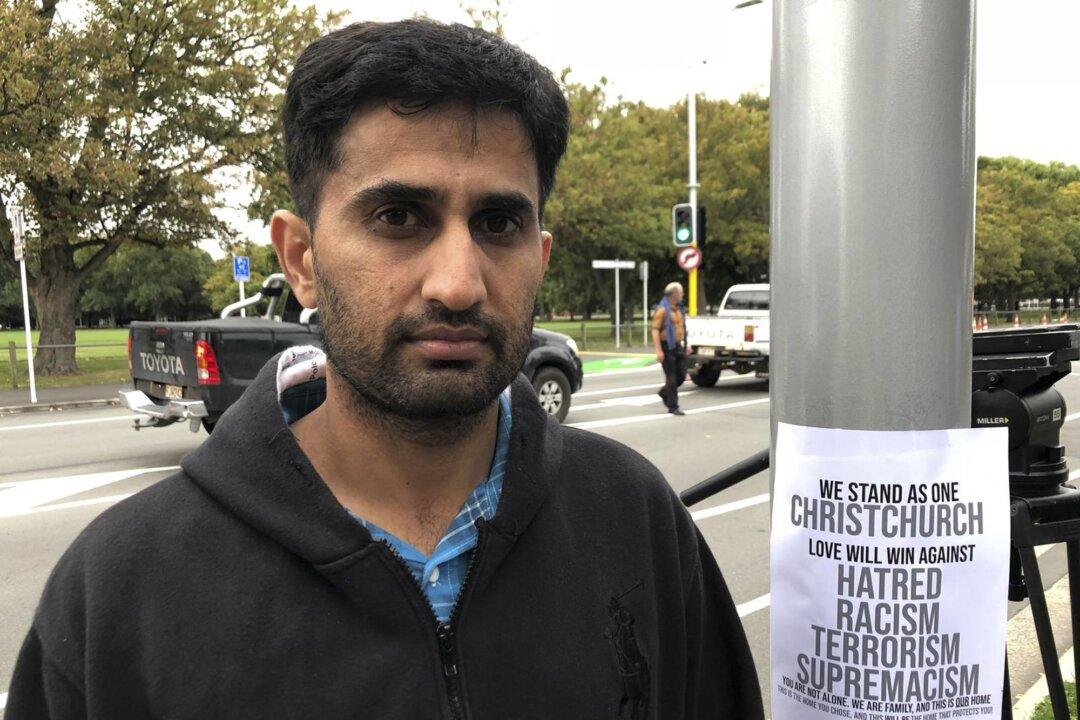CHRISTCHURCH, New Zealand—Amin and his father, Muhammad Amin Nasir, were just 200 meters from the Al Noor mosque on Friday, March 15, when everything went wrong.
They had no idea that a gunman had just slaughtered at least 41 people inside the mosque’s hallowed halls, or that more people would be killed at a second mosque soon after. All they knew was that a car that had been driving by had suddenly stopped. And a man was leaning out the car’s window, pointing a gun at them.





